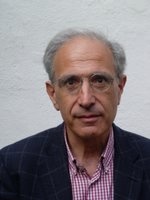Football can change the world
Football is the world’s most popular sport. It can be used in many ways to help create a better world. All sorts of projects have been set up, from homeless and slum football leagues and world cups to micro-enterprises making fair trade footballs. But none has been so successful as the Mathare Youth Sports Association established in 1987 in a Nairobi slum which set up the semi-professional Mathare United team which has now won Kenya’s Premier League and helped create many young sports stars.
Boys' football in MYSA was started in the Mathare and Eastleigh area. In the first year the league comprised 27 teams. In 1988 there were over 120 teams from junior to senior level. Today over 13,000 youth aged between 9-18 play in MYSA boys leagues with over 900 boys teams in 15 different zones.
Girls football was started in 1992. Many of the girls were doing domestic work and had nothing interesting to do in their free time. Football was an unexpected success. Girls playing football in African society was an alien concept. Parents weren't comfortable with the idea and the boys laughed it off thinking that girls couldn’t play at all. But some girls were interested and also saw it as an opportunity to get fit, and MYSA was determined to develop the idea. In 1996 the girls under-14 team featured in the Norway Cup. Seeing fellow girls in action was a great morale boost for them. More and more girls wanted to be involved in football. Their parents started encouraging them and their brothers were surprised by how good the girls were. In 1998 and 2000 the girls' teams were runners up in the Norway Cup.
One underlying principle behind MYSA is reciprocity. “We’ll do something for you (provide you with the opportunity to play football), if you give something back in return (help clean up the community)”. A win may earn 3 points in the Mathare league, but participating in a clean up earns 6 points!. The incentive is clear.
Under the MYSA Environment Programme, young people and their teams are encouraged weekly and voluntarily to remove solid waste and unclog open sewers which will reduce disease. Any team that completes its cleanup activity is awarded 6 points in the league standings and individual players get 2 points in every completed cleanup which increases their chance of winning a leadership award. The programme teaches the youth to be responsible for their environment and be “winners on and off the pitch”. One successful activity can lead to another. MYSA is now considering acquiring skills and the necessary equipment which can be used to start a garbage recycling plant, which could become a successful income generating activity for MYSA.
The MYSA Leadership Awards Project tries to help the youth stay in school for an additional year. The MYSA youth are able to earn points for participating in sports and community development activities. Each year the best young leaders by age and gender in our 16 zones will receive MYSA Leadership Awards paid directly to their school. Each award is about $150 which largely covers their school fees. Over 300 young leaders receive awards annually.
Key MYSA achievements
• More and more youth are joining MYSA
• Through sport, MYSA is able to fight poverty by creating job opportunities for the youth and involving them in a scholarship award programme which keeps most of them in school.
• Through sport, MYSA has managed to create awareness on key social issues such as HIV/AIDS and drug abuse.
• First Kenyan team in the Norway Cup.
• First to combine sports with environment clean up.
• First self-help league by and for slum youth.
• Started Mathare United semi-professional team, which is also the first top team to train its players on HIV/AIDS awareness.
• MYSA hosts more that 70 teams from all over Kenya and neighbouring countries, for an annual international girls tournament
• The MYSA sports programme has been a model to other organizations in Africa and has offered consultancy services to countries such as Tanzania , Uganda , Botswana , Sudan , Zambia and South Africa by assisting them in initiating a similar programme, as well as offering coaching and refereeing courses.
Key challenges for MYSA
• Since MYSA does not own any community fields, the sports programme has to rely on the co-operation of local schools for running its activities.
• Future aims are:
To possess our own fields.
To fully equip our MYSA zones with all the required sports equipment
To expand the sports programme to other areas in Kenya
To incorporate sport for the disabled in our programme
To have our own stadium
To host an international youth exchange soccer tournament like the Norway Cup
To decentralize and have offices in all the 16 MYSA zones
To introduce other sporting activities apart from soccer
How you can help
1. Support MYSA with a cash donation. $160 will provide one leadership award and keep a young person in school for an additional year. Contact www.mysakenya.org to find out more and to make a donation.
2. Donate equipment to MYSA. Trainers, boots, balls will all be useful.
3. Buy footballs from Alive and Kicking, a social enterprise which creates jobs for young people in Kenya making footballs, and donate them to MYSA. For just $15, A&K will make and deliver one football, netball or volleyball to a school, youth club, orphanage, slum project or refugee camp in Africa. www.aliveandkicking.org.uk


0 Comments:
Post a Comment
<< Home